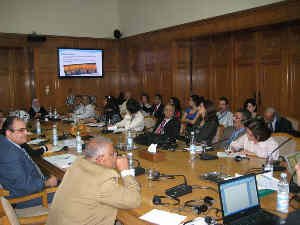Public Participation Guide
EPA's Public Participation Guide provides tools for public participation and public outreach in environmental decision-making.
This guide is designed with government agencies in mind, to help those who must manage the process where public participation is important for decision-making, while incorporating fair treatment, meaningful involvement and social inclusion of all people regardless of race, color, national origin, sexual orientation or income.
It will help you identify some of the best practices for planning, skills and behaviors that government agencies can use to design and implement a meaningful public participation program.
Introduction to the Guide
There is a great deal of public participation being implemented throughout the world today. Laws and regulations in many countries regularly require public meetings and comment on government actions. Some require even more extensive forms of public engagement and input.
The United Nations and other international bodies have also reinforced the importance of public participation to good governance and civil society, and offer many guidelines, handbooks, and other materials to assist in these programs.
However, all of this activity does not automatically translate into good practice. Meaningful public participation requires much more than simply holding public meetings or hearings or collecting public comment.
In fact, conducting such events without a thorough grounding in the elements of meaningful public participation can often have a negative effect, resulting in decreased public trust and eroding relationships between and among stakeholders.
(Additional information on the ethics, values, and principles of public participation.)
This guide provides a primer in public participation. It is designed with government agencies in mind, to help those who must manage processes where public input is important to decision-making. It is organized to provide you with a clear overview of important considerations in the design and implementation of a meaningful public participation program, while incorporating fair treatment and meaningful involvement of all people regardless of race, color, national origin, sexual orientation or income.

The guide is not intended to replace the important roles of training, experience, or expert assistance and will not turn a novice into an expert. It will help you identify some of the best practices in planning, skills, and behaviors that government agencies can use to design and implement meaningful public participation. It will also help you to recognize the difference between meaningful public participation and less valuable forms of public engagement. Most important, it will help you to select and design public participation programs to best meet the needs of your project and the publics you wish to engage.
The guide is organized to provide basic information and ideas as well as useful links to more content on the web. It follows a logical path to understand, plan, and implement a public participation program.
Contacts
For additional information on EPA's Public Participation Guide, contact:
Shereen Kandil
U.S. Environmental Protection Agency
Office of International and Tribal Affairs (2650R)
1200 Pennsylvania Ave., NW
Washington, DC 20460
E-mail: kandil.shereen@epa.gov
202-562-6600
